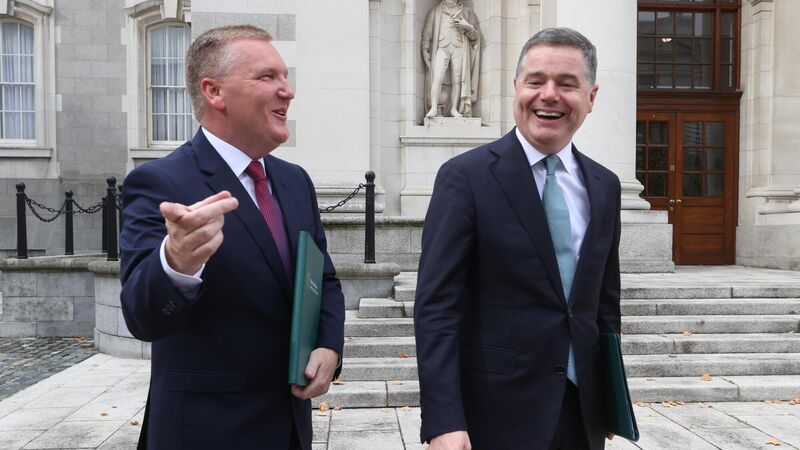Pizza for Paschal's people, shepherd's pie for McGrath: How Budget 2024 came together

Finance Minister Michael McGrath and Public Expenditure Minister Paschal Donohoe during Budget 2024 at Government Buildings, Dublin.
At 2.45am on Tuesday morning, the printers in the Department of Finance were whirring away, the staff manning it in for the long-haul, publishing the material that would make up that day's — and arguably the year's — political set-piece: Budget 2024.
Along the corridors, Public Expenditure Minister Paschal Donohoe called into offices to thank his officials for their diligence. He was headed home to catch some sleep before being picked up at 7.30am to present the budget along with Finance Minister Michael McGrath to their Cabinet colleagues. The departmental officials stayed another few hours to firm up the sums.

















